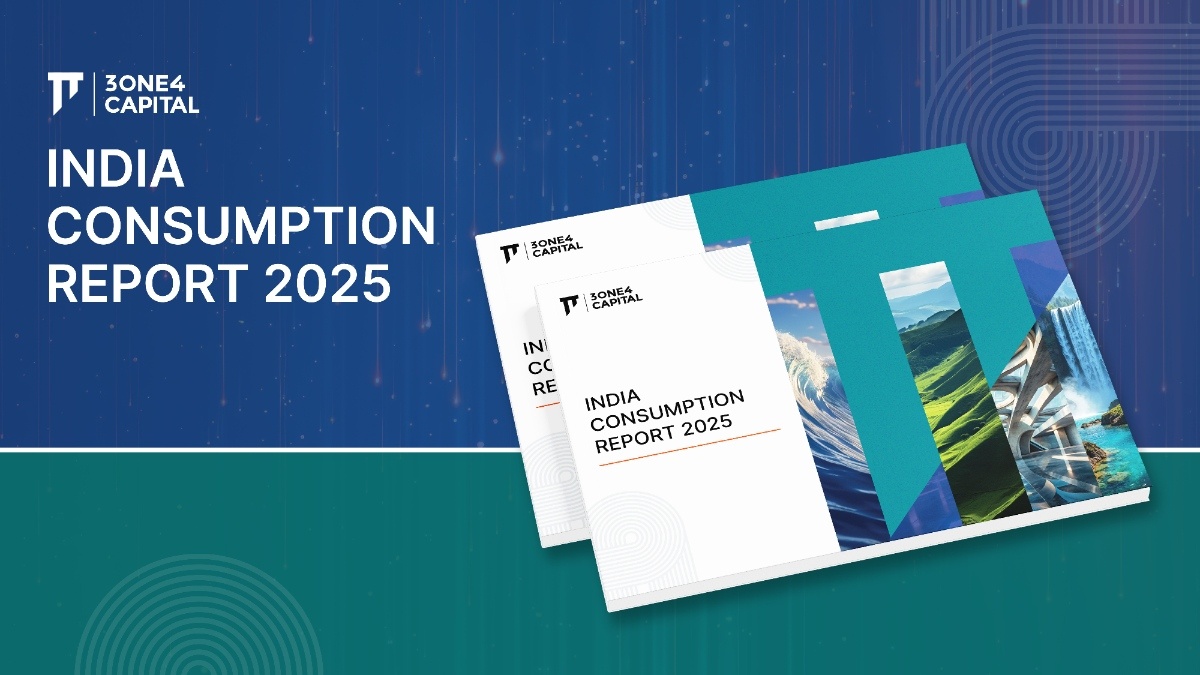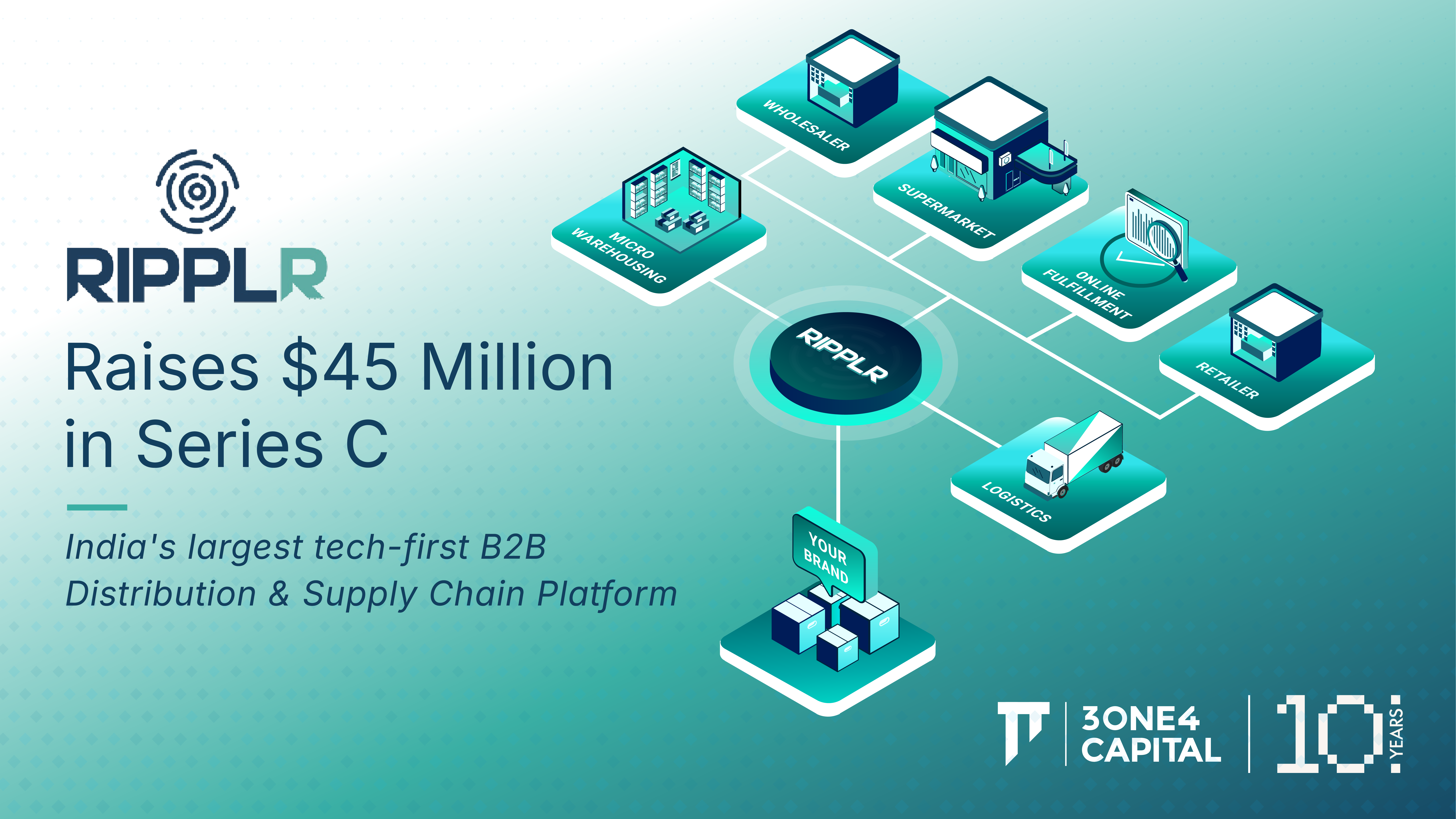
The Infinite Game: Srinivas Pulavarti on Building Durable Portfolios and India’s Next Decade
In the latest episode of The Record, T.V. Mohandas Pai sat down with Srinivas Pulavarti, Chief Investment Officer at Emory Investment Management, who oversees assets exceeding $12 billion. Over a career spanning UCLA, Johns Hopkins, Citigroup, and the University of Richmond, Pulavarti has been entrusted to build and rebuild some of the most sophisticated endowment portfolios in the United States.
Rather than offering market soundbites or short-term predictions, Pulavarti delivered a masterclass in what he calls the “infinite game” - building portfolios, teams, and systems that can endure volatility and compound over decades. Together with T.V. Mohandas Pai, he also turned his attention to India’s next chapter, exploring the structural shifts required to accelerate growth and unlock its full potential as a top-three global economy.
Designing for Permanence
When asked how he thinks about portfolios for institutions with 100-year horizons, Pulavarti doesn’t hesitate: discipline and clarity of purpose come first.
“Markets make returns look easy,” he said, “but producing consistent outcomes across cycles is inherently difficult.”
For endowments and foundations, the central challenge is to balance fixed, centuries-long liabilities against volatile asset bases while maintaining stability in returns. The task is to construct portfolios that can absorb shocks without compromising the institution’s ability to operate, and to resist the temptation of short-term reactions when markets are turbulent.
Reading the Signals in a Crisis
Pulavarti categorises crises by their origin because appropriate responses differ between financial, external, and political shocks.
Each calls for a different playbook.
The 2008 Global Financial Crisis was leverage-driven and, in hindsight, relatively more manageable, leading into a prolonged US bull market. COVID-19, by contrast, was a health shock that froze markets before unleashing extraordinary opportunity.
And today’s environment?
“This one is politically driven, top-down, and still being digested,” he said.
The lesson is clear:
“You cannot claim to be a long-term investor and then panic when the market falls. Your job is to make sure a shock, any shock, doesn’t disrupt the institution for the next one, two, or three years.”
His consistent counsel is to identify the source of a shock, apply long-term logic, and avoid panic. Modern economies, he notes, are more resilient, more liquid, and supported by stronger regulations and interconnected markets. However, calm discipline continues to distinguish the most effective investors.
American Blueprint for Growth
Why has the US been able to reinvent itself repeatedly over the decades?
Pulavarti frames the US advantage as a combination of four elements:
- Broad equity capital formation through deep retail and institutional participation.
- A capacity to invent and diversify asset classes, private equity, venture, hedge funds, and real assets, that provide risk capital.
- A culture and institutional framework that rewards private enterprise and the freedom to innovate.
- An unmatched ability to attract global talent, which multiplies returns when joined with large capital pools.
“Retail and institutional investors literally built corporate America,” he explained, pointing to the trillions that flowed into equity markets and index funds.
Endowments, pensions, and insurance companies added fuel by creating new categories - private equity, venture capital, hedge funds, real assets - that gave risk-takers the capital they needed. Together, this flywheel made the US the global leader in innovation and economic growth.
India’s Distinct Path
Pulavarti notes that India’s journey will be neither a replica of the US nor a mirror of China.
He acknowledged the significant progress in infrastructure and expects research intensity to rise as per-capita income grows. But he cautioned that transformation at the scale of 1.4 billion people must be iterative and patient.
India, he argued, must deepen its public markets, develop a more robust private equity framework with access to leverage, and encourage founders to stay the course through the eight-to-nine-year timelines that global venture outcomes typically require. Most of all, India must generate more “creator-led” ideas, companies solving globally relevant problems, rather than relying solely on service models.
Constraints That Matter
To unlock global scale, Pulavarti highlights structural gaps:
- A shortage of global-scale ideas relative to the US.
- A nascent private equity model constrained by limited leverage and founders’ reluctance to cede control.
- The patience problem for venture outcomes; US venture timelines often run 8.5 to 9 years, a cadence India must learn to tolerate.
- Shallow public markets and regulatory limits that reduce local investors’ ability to diversify globally.
- A need for more "creators" who build globally transferable ideas rather than primarily servicing incumbents.
Where Opportunity Lives
Despite those gaps, India has durable tailwinds:
- A global pool of capital eager for asset creation opportunities.
- A deep entrepreneurial DNA that fosters efficiency and value orientation.
- A maturing ecosystem, early-stage venture, private equity, and public markets, likely to lift together over the next two decades.
Building Teams and Backing Outsiders
For Pulavarti, portfolio construction is only half the story; the other half is people. He sees his role as part Chief People Officer, part strategist, and part risk manager.
The prescription is disciplined diversification, empowered teams, and conviction in long-term bets.
His approach is to recruit intrinsically driven young talent, empower them to take risks early, and avoid unnecessary micromanagement.
Externally, Pulavarti maintains a deliberate tilt, about 10 per cent of capital, toward emerging managers. “Ninety-nine per cent of managers are cookie-cutter,” he noted, “so you have to spend your time where the dispersion of outcomes is widest. That’s where contrarian, non-consensus ideas can deliver outsized value.”
Mega Trends to Watch
Looking ahead, Pulavarti highlighted three forces shaping the global investment landscape:
- Demographics – an ageing population and shrinking workforces across much of the developed world.
- Technology – the sweeping revolution in AI, quantum computing, robotics, and genomics.
- Geopolitics – the realignment of economic power centres, from the US and Europe to Asia.
The prescription, he said, is disciplined diversification, empowered teams, and conviction in long-term bets — the essential ingredients of resilience in an era of constant transformation.
Playing the Infinite Game
The challenge, he stressed, is to stay patient, think globally, and underwrite risk even when the path feels uncertain.
Pulavarti’s framework, patient capital, creator cultivation, and multi-year timelines align with the mission of firms that back early-stage tech and deep tech with long horizons.
The key advice is steady and modest: prepare for volatility, hire and empower creators, and commit capital with patience. India’s ascent will be nonlinear and iterative, but talent, capital, and an evolving ecosystem are assembling the conditions for sustained progress. Investors, founders, and policymakers must create environments that reward long bets, cultivate creators, and keep capital flowing to teams with global ambition.
At 3one4 Capital, we share this conviction. Our work with founders is built for the eight-to-nine-year journeys that category-defining companies require. By pairing patient capital with deep operational support, we aim to transform India’s emerging creators into globally relevant businesses, playing the same infinite game Pulavarti champions.
Pulavarti closed with a message for India’s entrepreneurs and investors: “We need more creators. The future belongs to those who build.”
DISCLAIMER
The views expressed herein are those of the author as of the publication date and are subject to change without notice. Neither the author nor any of the entities under the 3one4 Capital Group have any obligation to update the content. This publications are for informational and educational purposes only and should not be construed as providing any advisory service (including financial, regulatory, or legal). It does not constitute an offer to sell or a solicitation to buy any securities or related financial instruments in any jurisdiction. Readers should perform their own due diligence and consult with relevant advisors before taking any decisions. Any reliance on the information herein is at the reader's own risk, and 3one4 Capital Group assumes no liability for any such reliance.Certain information is based on third-party sources believed to be reliable, but neither the author nor 3one4 Capital Group guarantees its accuracy, recency or completeness. There has been no independent verification of such information or the assumptions on which such information is based, unless expressly mentioned otherwise. References to specific companies, securities, or investment strategies are not endorsements. Unauthorized reproduction, distribution, or use of this document, in whole or in part, is prohibited without prior written consent from the author and/or the 3one4 Capital Group.


.webp)












